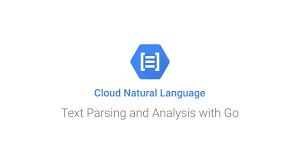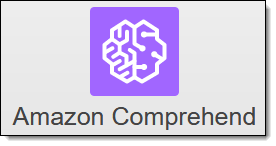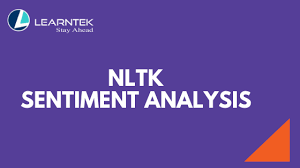Sentiment analysis is a valuable technique used by businesses, marketers, and researchers to extract insights from vast amounts of unstructured data such as customer reviews, social media conversations, and surveys. With the advancement of artificial intelligence (AI), analyzing the sentiment of text has become easier, quicker, and more accurate than ever before. AI-powered sentiment analysis tools can help businesses understand their customers' opinions, attitudes, and emotions towards products and services, enabling them to make data-driven decisions that improve customer satisfaction and loyalty.
In this blog, we will discuss some of the best AI tools for sentiment analysis that can be used by businesses of all sizes and industries. Whether you are looking to improve customer experience, optimize your marketing strategy, or conduct market research, these AI tools can provide valuable insights that help you stay ahead of the competition. So, let's dive in and explore the top AI tools for sentiment analysis!
Google Cloud Natural Language API

Google Cloud Natural Language API is a powerful AI tool for sentiment analysis that uses machine learning to identify the sentiment behind text. With this tool, users can analyze a wide variety of texts, including social media posts, news articles, and customer reviews. The API can determine whether a text is positive, negative, or neutral and can also provide insight into the emotions and entities present within the text. Additionally, the tool has the capability to identify the language of the text and can perform syntax analysis to identify the relationships between words.
Pros
Cons
Overall Rank
IBM Watson Natural Language Understanding

IBM Watson Natural Language Understanding (NLU) is a powerful AI tool that can analyze and comprehend unstructured text data in a variety of languages. It uses advanced techniques such as sentiment analysis, entity recognition, and concept tagging to extract meaningful insights from text data. With Watson NLU, businesses can gain a better understanding of their customers, competitors, and market trends by analyzing social media posts, customer reviews, news articles, and other text-based sources. Additionally, Watson NLU can also be used for content classification, search engine optimization, and chatbot development. Its ability to understand human language and provide relevant insights makes it a valuable tool for businesses across different industries.
Pros
Cons
Overall Rank
Amazon Comprehend

Amazon Comprehend is a powerful AI tool developed by Amazon Web Services (AWS) that enables businesses to gain insights from their unstructured text data. It uses natural language processing (NLP) algorithms to automatically extract key phrases, entities, sentiments, and topics from text sources, including social media posts, emails, customer reviews, and more. With Comprehend, businesses can easily analyze large amounts of data in near real-time, identify emerging trends and customer opinions, and make informed decisions based on the insights gained from their data. Moreover, the tool is user-friendly and does not require extensive technical expertise, allowing non-technical users to access and utilize it effectively.
Pros
Cons
Overall Rank
MonkeyLearn

MonkeyLearn is a powerful AI tool that enables businesses to automate their text analysis processes. This cloud-based platform uses machine learning algorithms to analyze text data and extract relevant insights from it. With MonkeyLearn, businesses can easily analyze customer feedback, social media posts, reviews, and any other type of textual data to identify patterns and trends, categorize content, and extract valuable insights. The platform provides a user-friendly interface that allows users to customize and train their own machine learning models without any coding knowledge. MonkeyLearn also offers integrations with popular tools such as Zapier, Google Sheets, and Slack, making it easy to automate workflows and streamline processes.
Pros
Cons
Overall Rank
AYLIEN Text Analysis API

AYLIEN Text Analysis API is an AI tool that provides advanced natural language processing capabilities to developers, researchers, and businesses. It can analyze text in multiple languages and extract various types of information such as entities, keywords, and sentiment. AYLIEN Text Analysis API also includes features for summarization, classification, and entity linking, making it a versatile tool for a wide range of applications. Its user-friendly interface and comprehensive documentation make it easy to integrate into existing applications and workflows, while its scalable infrastructure ensures that it can handle large volumes of data in real-time.
Pros
Cons
Overall Rank
Hugging Face Transformers

Hugging Face Transformers is an AI tool that has revolutionized the field of Natural Language Processing (NLP) by offering state-of-the-art pre-trained models for a wide range of NLP tasks. The tool allows developers and data scientists to easily fine-tune and train models on their own custom datasets, enabling them to achieve high levels of accuracy on their specific tasks without having to invest in extensive computational resources or expertise. In addition, Hugging Face Transformers provides a user-friendly interface for model deployment, making it easy to integrate NLP capabilities into various applications and services. Overall, Hugging Face Transformers is a powerful and versatile tool that has made NLP accessible to a wider audience and has greatly accelerated progress in the field.
Pros
Cons
Overall Rank
NLTK Sentiment Analysis

Natural Language Toolkit (NLTK) is a popular open-source platform used for natural language processing. One of its most useful features is the Sentiment Analysis tool, which is capable of analyzing and classifying text data based on the emotional tone of the text. The tool uses various algorithms and techniques to classify the text as positive, negative, or neutral, making it valuable in various fields, including marketing, social media analysis, and customer service. NLTK Sentiment Analysis tool uses lexicons and machine learning techniques to analyze the text and provide an accurate sentiment score, making it a reliable tool for businesses and individuals alike.
Pros
Cons
Overall Rank
Stanford CoreNLP

Stanford CoreNLP is a powerful and efficient natural language processing (NLP) tool developed by the Stanford Natural Language Processing Group. It is widely used by researchers, developers, and data scientists for various NLP tasks such as sentiment analysis, named entity recognition, part-of-speech tagging, and dependency parsing. One of the key advantages of CoreNLP is its ability to perform all these tasks simultaneously, which makes it an ideal tool for analyzing large text datasets. Additionally, CoreNLP provides a user-friendly interface, supports multiple languages, and offers pre-trained models for various NLP tasks, making it easy for developers to integrate it into their applications.
Pros
Cons
Overall Rank
RapidMiner

RapidMiner is a powerful AI tool designed for data mining, machine learning, and predictive analysis. It offers a user-friendly interface that allows users to easily create and deploy predictive models without the need for extensive coding skills. The tool also provides a wide range of features, including data preparation, model building, validation, and deployment. RapidMiner supports a variety of data sources, including databases, spreadsheets, and cloud-based data stores, and offers a range of integrations with other data science tools. Additionally, the platform's automated machine learning capabilities enable users to quickly and easily build accurate models, even with limited data science experience.
Pros
Cons
Overall Rank
SAS Sentiment Analysis

SAS Sentiment Analysis is an AI tool that can be used to analyze customer feedback, social media posts, and other text-based data to determine the overall sentiment. This tool utilizes natural language processing and machine learning algorithms to identify positive, negative, and neutral sentiments within text data. By using this tool, businesses can gain valuable insights into customer sentiment and preferences, which can help them make more informed decisions about their products, services, and marketing strategies. Moreover, SAS Sentiment Analysis can also help companies to quickly detect potential issues, monitor their brand reputation, and improve customer satisfaction.
Pros
Cons
Overall Rank
Lexalytics Semantria

Lexalytics Semantria is an AI-powered text analysis tool that enables businesses to extract meaningful insights from unstructured data sources. The tool uses natural language processing (NLP) and machine learning algorithms to analyze text from various sources such as social media, customer feedback, and surveys. Semantria can identify entities, themes, sentiment, and relationships within the text to provide valuable insights that can be used for decision making. The tool is highly customizable, allowing users to create their own categories and criteria for analysis. It also has a user-friendly interface and offers real-time data processing capabilities, making it an ideal solution for businesses looking to quickly and efficiently analyze large volumes of text data.
Pros
Cons
Overall Rank
Clarabridge

Clarabridge is a powerful AI tool that provides companies with actionable insights from customer feedback. It uses natural language processing (NLP) and machine learning algorithms to analyze customer feedback from multiple sources, including surveys, social media, and online reviews. The platform's real-time insights help companies quickly identify and address customer concerns, improve product features, and optimize customer experience. Clarabridge also provides sentiment analysis to gauge the emotional tone of customer feedback and categorize it accordingly. The tool offers robust reporting capabilities, including customizable dashboards and automated alerts, making it easier for companies to track their performance over time.
Pros
Cons
Overall Rank
Microsoft Azure Text Analytics

Microsoft Azure Text Analytics is an AI-powered tool that enables businesses to analyze large volumes of unstructured text data, such as social media posts, emails, and customer reviews. The tool uses natural language processing and machine learning algorithms to identify patterns, sentiment, key phrases, and entities within the text data. With this information, businesses can gain insights into customer behavior, identify potential issues, and make data-driven decisions. Additionally, the tool supports multiple languages, making it ideal for businesses with a global presence.
Pros
Cons
Overall Rank
Repustate

Repustate is a powerful AI tool designed to analyze and understand unstructured data such as text, social media posts, and reviews. It utilizes advanced natural language processing (NLP) techniques to extract insights from large volumes of text data, allowing businesses to make informed decisions based on customer feedback. Repustate's sentiment analysis capabilities can accurately classify text as positive, negative, or neutral, providing valuable insights into customer sentiment and preferences. The tool also offers multilingual support, making it ideal for businesses with a global presence. Repustate's user-friendly interface and robust API make it easy to integrate into existing workflows and applications.
Pros
Cons
Overall Rank
Brandwatch

Brandwatch is an AI-powered social media listening and analytics tool that enables businesses to monitor their online presence and understand customer sentiment towards their brand. It allows users to track mentions of their brand on various social media platforms and analyze the data to gain insights into customer behavior and preferences. With its advanced AI technology, Brandwatch can identify trends, detect anomalies, and provide actionable recommendations to improve a brand's online reputation. The tool also offers a customizable dashboard that displays real-time data, enabling users to make informed decisions quickly. Overall, Brandwatch is an excellent tool for businesses looking to monitor and manage their online presence effectively.
Pros
Cons
Overall Rank
Bitext

Bitext is an AI tool that provides a range of natural language processing (NLP) services for businesses. It uses state-of-the-art technologies, such as deep learning and neural networks, to help companies analyze large volumes of text data and gain valuable insights from it. Bitext's services include sentiment analysis, intent detection, entity recognition, and text classification, among others. It also offers a multilingual platform, allowing businesses to analyze text in various languages. Additionally, Bitext provides an easy-to-use API and SDK, enabling developers to integrate its NLP capabilities into their own applications seamlessly. Overall, Bitext is a powerful tool that can help businesses enhance their NLP capabilities and gain valuable insights from their text data.
Pros
Cons
Overall Rank
MeaningCloud

MeaningCloud is an AI-powered text analytics tool that provides a range of services, including sentiment analysis, entity recognition, and text classification. It uses natural language processing (NLP) algorithms to analyze large volumes of unstructured text data and extract valuable insights. One of the key strengths of MeaningCloud is its multilingual capabilities, as it supports more than 20 languages and can handle different writing styles and grammatical structures. This makes it an excellent tool for businesses that operate globally and need to analyze customer feedback or market trends across different regions and cultures. Additionally, MeaningCloud provides a user-friendly interface and offers flexible pricing plans, which make it accessible to both small businesses and large enterprises.
Pros
Cons
Overall Rank
In conclusion, sentiment analysis has become an essential tool for businesses, marketers, and researchers to understand the opinions, emotions, and attitudes of their target audience. With the advancement of artificial intelligence, various AI tools have been developed that make it easier to analyze vast amounts of data quickly and accurately. In this blog, we have discussed some of the best AI tools for sentiment analysis, including Google Cloud Natural Language API, IBM Watson Natural Language Understanding, and Amazon Comprehend. Each tool has its strengths and weaknesses, but they all provide valuable insights into customer feedback, online reviews, social media conversations, and other types of unstructured data. It is important to note that while these AI tools can provide valuable insights, they should not be relied upon entirely. Human interpretation and analysis are still necessary to ensure the accuracy and reliability of the results. Nonetheless, the AI tools for sentiment analysis are undoubtedly valuable resources that can save time and effort, and help businesses make data-driven decisions that improve customer satisfaction and loyalty.
